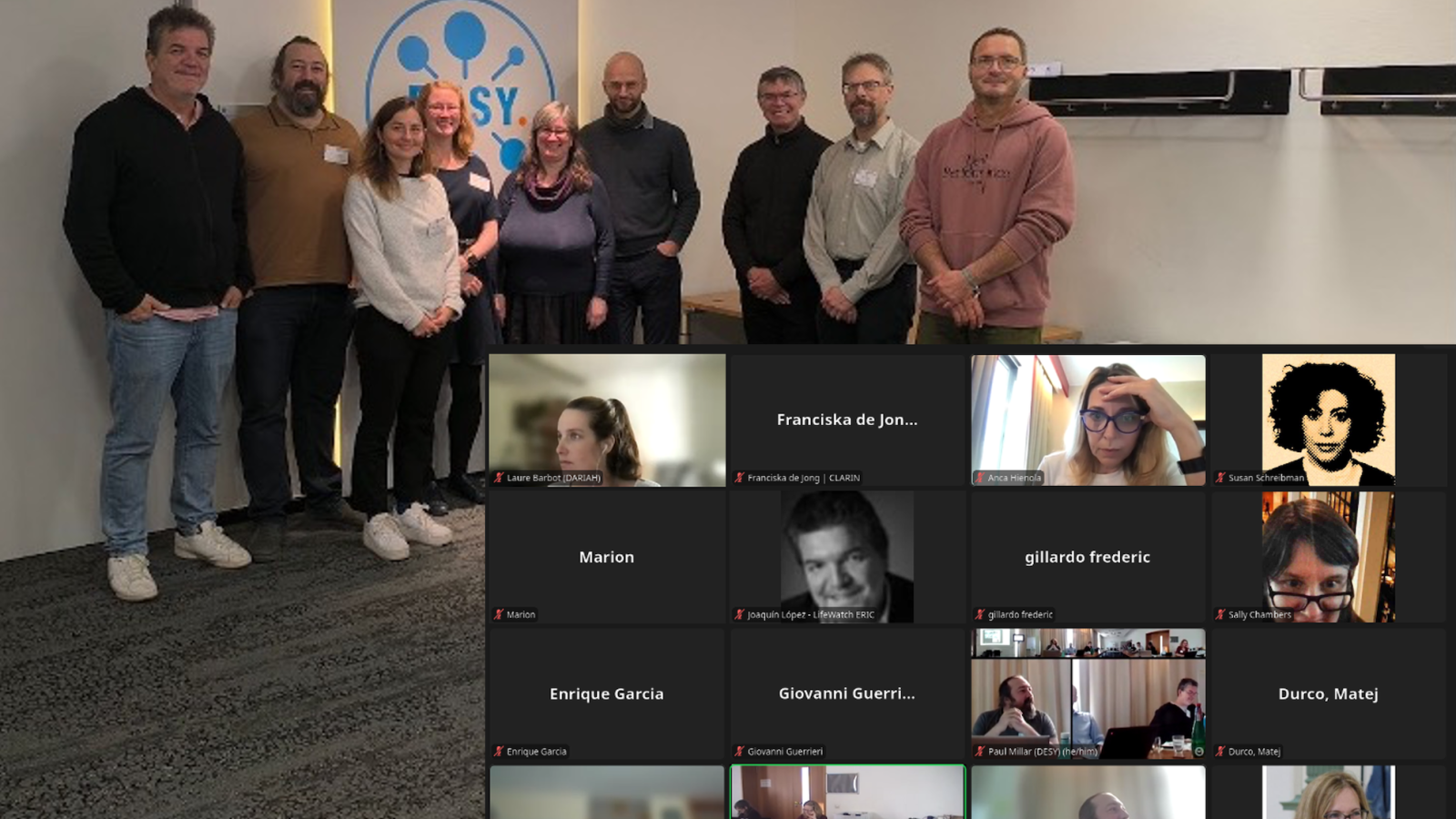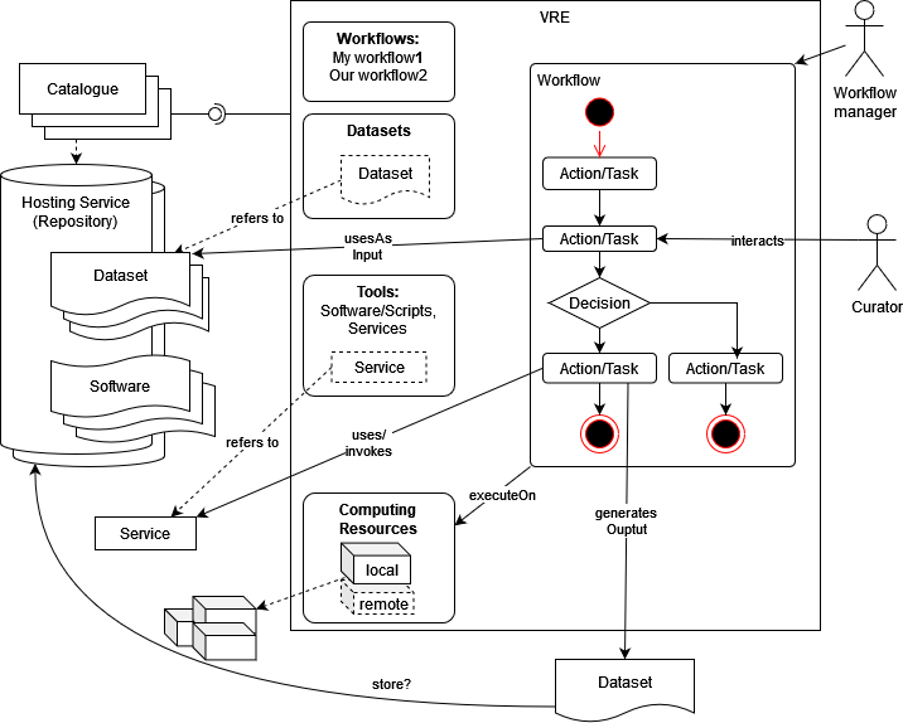
We are pleased to announce the successful completion of the recent Consolidation and Terminology Workshop, organised by work packages WP2 and WP3 of the OSCARS project. Held from 30 September to 2 October at DESY in Hamburg, Germany, the event brought together 17 members from all five Science Clusters (SCs) to discuss their catalogues of services and data sources, as well as the data service terminologies used within their respective domains.
The first half of the workshop focused on WP2’s consolidation tasks, i.e. cataloguing the Services and Data Sources of each Cluster to identify, which one may be made “composable”. In this context, composability refers to the ability to combine and integrate smaller and modular components or services into more complex systems, based on Open Science research practices. In a composable system, each component is designed to function independently but can be easily assembled or reconfigured with others to create new workflows or applications.
During interactive sessions, the SCs’ representatives shared updates on their current catalogue status, determined services with composability potential, introduced appropriate demonstrators, and identified upcoming challenges. In subsequent discussions, participants discovered interesting commonalities between the analyses within their clusters. For example, the telescope community within ESCAPE and the general approaches within PaNOSC share highly similar workflows for data collection and initial corrections, opening the door to more intensive joint resource utilisation.
Throughout the first half of the workshop, participants worked together to identify and collect terms used to describe clusters’ services, data sources, and their operations, that seem ambiguous, either in a cross-cluster context, or within individual SCs. The second half of the workshop was dedicated to define and contextualise a first set of these controversial terms, to determine which are the ones to prioritise towards building a common vocabulary among SCs. With the support of the OSCARS Glossary Task Force, we created a set of agreed-upon definitions and drafts of a visual schema depicting the relationships between these terms in each SC.

Figure 1 - Schema of key definitions capturing the relationships of key terms within SSHOC
Additionally, two invited talks on Authentication and Terminology Mapping enriched the workshop. Marina Adomeit (Swedish University Computer Network) and Janos Mohacsi (Governmental Agency for IT Development (KIFÜ) in Hungary) gave a great introduction to the AARC-Tree project, which is the continuation of the successful “Authentication and Authorisation for Research Collaboration” (AARC). AARC-Tree enhances federated access management by incorporating user-centred technologies for accessing federated data and services. This project can potentially support the Science Clusters and/or the research facilities within OSCARS to implement the architecture for the different Authentication and Authorisation Infrastructures (AAI) needed within WP2. In the second talk, Yann Le Franc from the Research Data Alliance (RDA) presented his work about ‘FAIR mappings and crosswalks and more’. Among others, Le Franc introduced the Simple Standard for Sharing Ontological Mappings (SSSOM), an ontology that facilitates the alignment of different terminologies and that document crosswalks in a standardised way—particularly useful for WP3’s goal of establishing a shared language among the SCs and make this crosswalk understandable, reusable and easy to ameliorate.
The workshop was part of WP2's route from Consolidation via Composability towards Engagement. Identifying the most relevant services and developing the appropriate composability demonstrators by cluster and cross-cluster will allow a wide range of research communities to document their best practices in using Research Infrastructures services and data sources.
With respect to the work done on terminology as part of WP3, the vocabulary identified will serve as the foundation for an upcoming Research Data Alliance (RDA) session focused on data management and the quality of data management terminologies. This vocabulary will be further refined and validated through a community paper, co-authored by key OSCARS stakeholders and other communities linked to EOSC and RDA. In preparation for this session, a draft outline of the community paper must be finalised before the RDA Plenary, scheduled to take place in mid-November in Costa Rica. Remote participation is available for those interested in joining the session, and there is an opportunity to become part of the co-author team contributing to the paper. This collaborative effort aims to build a shared understanding of key terminologies, which is essential for advancing data management practices across diverse research domains.
For more information about the workshop, please visit https://indico.in2p3.fr/event/33524/.